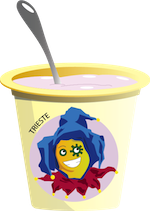Team:Trieste/notebook5
From 2012.igem.org
(Difference between revisions)
Clagnanelisa (Talk | contribs) |
Samarisara (Talk | contribs) |
||
| Line 46: | Line 46: | ||
<li><a href="https://2012.igem.org/Team:Trieste/notebook3">Week 3</a></li> | <li><a href="https://2012.igem.org/Team:Trieste/notebook3">Week 3</a></li> | ||
<li><a href="https://2012.igem.org/Team:Trieste/notebook4">Week 4</a></li> | <li><a href="https://2012.igem.org/Team:Trieste/notebook4">Week 4</a></li> | ||
| - | <li><a href="https://2012.igem.org/Team:Trieste/notebook5">Week 5</a></li> | + | <li class="select" ><a href="https://2012.igem.org/Team:Trieste/notebook5">Week 5</a></li> |
<li><a href="https://2012.igem.org/Team:Trieste/notebook6">Week 6</a></li> | <li><a href="https://2012.igem.org/Team:Trieste/notebook6">Week 6</a></li> | ||
<li><a href="https://2012.igem.org/Team:Trieste/notebook7">Week 7</a></li> | <li><a href="https://2012.igem.org/Team:Trieste/notebook7">Week 7</a></li> | ||
Revision as of 08:26, 26 September 2012
Week 5
More
Suicide System
We finally obtained positive colonies of the construct Tse2 toxin-TT_B0015, checked by PCR, and we cloned it inside the RBS (BBa_B0031). As already known in the registry and due to the strong expression of the toxin, we decided to use the weak RBS, because we wanted to avoid that the promoter leakage leads to the destruction of the cell. We sent the construct to sequence and we waited for the sequencing results.We also explored another suicide strategy, combining the holin (BBa_K112000) with the LL 37 (BBa_K875009).
Antibody
This week, our aim was to convert our antibody from SIP format info scFv format. To this end, removed constant domain (CH3) from pelB-SIP antibody. Then we replaced pelB leader sequence with LPP-OmpA in order to crate scFv displayed on the bacterial surface. To ensure that the antibody sequence was not mutated by this modification, we sequenced our fragments.Chassis
CymRWe cut the J23100-CymR-B0015 fragment and we ligated it in the plasmid J61002 downstream another J23100-CymR-B0015 sequence in order to obtain a double copy of J23100-CymR-B0015 in one single plasmid.
Then we cut the PCR positive clones with EcoRI/PstI to integrate the couple in the genome but this revealed with aspecific bands that the sequences J23100-CymR-B0015 x2 wasn’t good. So we restarted the same procedure but with different J23100-CymR-B0015 clones.
T5 PROMOTER - CUMATE OPERATOR
We cut the positive clone T5 promoter - E0240 and we ligated it in the plasmid J61002 downstream the J23100 - CymR - B0015 sequence. We obtain three positive clones, so we tried a cumate - test on these posive clones. We streaked the cells on plates with different concentrations of cumate, but we got no result. We tried with higher concentrations and in liquid culture and again we didn’t have results as they did't show the fluorescence. Consecutively we digested this clones with Eco and Pst, to analyze them but they showed three and not two bands like aspected. we tried other analytic cuts but they were all wrong too.
We try to do a replica plate of the clones T5 promoter - E0240 (without the J23100-CymR-B0015 ) in both ampicillin and chloramphenicol plate in order to exclude some plasmid‘s mistake. Unfortunately the majority grew both on the two resistance and the colonies that grew only on the ampicillin plate weren't fluorescent.







 "
"









